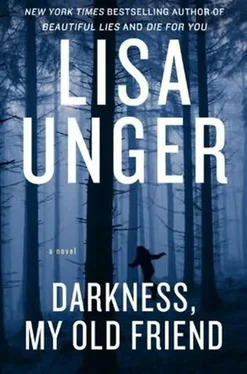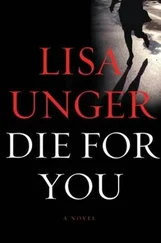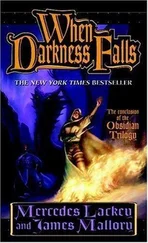“No more cutting, Willow,” said Mr. Ivy. “If you’re struggling, having a hard day, having trouble with the other kids, teachers, whatever, come see me. I’ll always make time to talk it through.”
He meant it. She could see that in his eyes. He wasn’t a fake, like her stepfather, Richard, with all his expensive gifts and “heartfelt” apologies. Mr. Ivy didn’t want anything in return, didn’t have a guilty conscience to be massaged or a skittish ego to be stroked.
“Okay,” she said. “I promise I’ll do that, Mr. Ivy.”
She offered him a shy smile. Embarrassed-but-trying was the look she was going for. Mr. Ivy seemed to buy it, giving her a warm smile and an approving nod. He leaned back in his chair. Bethany released a breath beside Willow.
“Good. Great,” said Mr. Ivy.
“Well,” Bethany said, slapping her palms lightly on her thighs. “I feel like we’ve accomplished something.”
Lies, good lies, were about more than words. They were about tone, expression, and body language, too. The best lies contain a little bit of truth. Some details, but not too many. More than any of that, though, you had to believe the lie yourself. You had to be the lie.
Her first lie had been about a Britney Spears concert. Her father-and of course she’d always thought of him that way then, because she didn’t know anything else-was supposed to take her to the concert for her thirteenth birthday. Front-row seats, he’d said. He was trying to finagle a backstage pass from one of his clients, but no promises there.
She’d told everyone -and her friends were sick with jealousy, begging to come along. And truth be told, she would much rather have had one of them with her than her father. But he had only two tickets, and Willow’s going alone with a friend was out of the question. But her mom took her to Betsey Johnson and bought her a new top, to Lucky Brand for a new pair of jeans. She felt really grown up, and she rarely had time alone with her dad. So maybe it wasn’t that lame to be going with him.
The night of the concert, Willow and Bethany had pizza while they waited for her dad to come home. They rocked out to the new CD and danced around the kitchen, using spatulas for microphones. He was supposed to be home by seven, but by seven fifteen he still wasn’t there. Bethany called his office and then left a message on his cell phone.
“If you’re caught up at work, let us know. I’ll come get the tickets and take her myself,” she heard her mother say. But he didn’t call back and he didn’t come home. Anxiety gave way quickly to a bone-crushing disappointment.
As eight turned to eight thirty, and eight thirty turned to nine, Willow wept in her mother’s lap. It wasn’t the first time he hadn’t come home when he was supposed to. He had broken other dates and promises. But this was the first time he’d done it to Willow. Usually it was Bethany dressed up and waiting, falling asleep on the couch, the sitter sent home. They weren’t worried about him-that’s what Willow remembered-didn’t fear that something terrible had happened.
In her room she saw a slew of text messages on her phone from her friends. HOW IS IT??? OMG, I’M SO JEALOUS!!! SEND ME A PICTURE OF YOUR OUTFIT!! She could call any one of them and start to cry about her father. No one would judge her; not one of her friends was living with both her biological parents. They were all accustomed to the heartbreak and disappointment of divorce, ugly custody battles, blending families. But she didn’t call them. Something inside her couldn’t stand to lose face that way; she was the one with the perfect family-the famous mom, the successful plastic-surgeon father. She sent a group text: IT’S AWESOME!!! WISH YOU WERE HERE!! PIX TOMORROW!!
Just as she sent it, her mother was standing in the door.
“Willow. I’m so sorry.”
“It’s not your fault, Mom.”
But she could tell by the look on her mother’s face that she was taking it on, the way she took on everything. And somehow this just made Willow feel worse. She remembered everything about that night. But most of all she remembered that terrible aching sadness as she lay in bed.
Around midnight she heard her father come home.
“Oh, Christ, Beth. I forgot. I got held up in surgery.”
“Bullshit, Richard. Were there even tickets?”
Willow buried her head beneath her pillow against the crescendo of their voices. Then it got quiet for a while. Just as she was drifting off to sleep, she heard the front door slam and her mother start to cry.
The next day Willow told all her friends about the concert-using details she’d gleaned from blogs and videos posted online. No, her dad couldn’t get those backstage passes. But she told them how she’d met this really cute guy when her dad went off to use the bathroom. She gave the boy her e-mail address, because she really didn’t want to give out her number. His name was Rainer; he believed her when she told him she was sixteen years old. She told her friends how her dad took her out for a burger and a shake afterward and she didn’t get home until past midnight. It was the best time ever .
And it was all true. She should have been there-she could imagine every detail, hear the music, feel the excitement. She was there. Her lie told the truth, as it should have been. And there was not a flicker of doubt from anyone. Why would there be?
Somehow, in doing this, Willow felt a little less desperately sad, as though she’d taken back something that had been taken from her. The real truth was just so pathetic. In telling her lies that day, she felt a kind of rare power. She couldn’t control a thing about her life, her father’s persistent and growing absence, her parents’ disintegrating marriage. But she could control its telling.
And she didn’t feel bad about it at all, not about the envy she saw on her friends’ faces, not even about how she had to tell more lies now to sustain the illusion. The imaginary boy she’d met at the concert she’d never attended? The next day they were asking about him. Did he ever e-mail her? Of course he did.
She didn’t know, couldn’t have known, that that first little lie would grow and grow. She couldn’t have imagined the consequences.
“Willow? Are you listening?”
“Of course,” she said. “I am listening.”
They were both staring at her. She straightened up from the slump she’d unconsciously sunk into.
“I promise. I’m on board. I want to do better.”
Willow did want that. She really did. At least in that moment, she wanted to be someone they could both be proud of. She left Mr. Ivy’s office feeling good, optimistic. When she gave her mother a hug good-bye and headed off to advanced calculus, she was sure she’d meant every word she said.
But by the end of the day, she was sinking back into that funk. She’d been brutalized in gym class during a game of softball in which she’d tripped and screwed up a triple play for her team. At lunch she’d sat alone to read but had to endure the snickering, whispering stares of the designer bitches. She and Jolie used to have the same lunch period, but Jolie had apparently been switched after returning from suspension. Willow was pretty sure that Mr. Ivy had a hand in it, wanting to minimize Jolie’s influence. But when Jolie was there, Willow could handle the harpies better; they were almost funny when Jolie was around to point out their flaws: Lola had a big ass; Stacey was flat-chested; Emma was prone to breaking out. But not really. That was just Jolie trying to be funny. Without Jolie there to take the edge off, Willow was left to fixate on them. What was it? Genes? How did they get such silky hair, creamy skin, perfect bodies? And why did it make them so awful? So mean? Was it just because their beauty acted as a kind of armor? They could hurt others, but no one could hurt them. Whatever flaws they had were on the inside; no one could call those out and make them cry.
Читать дальше












